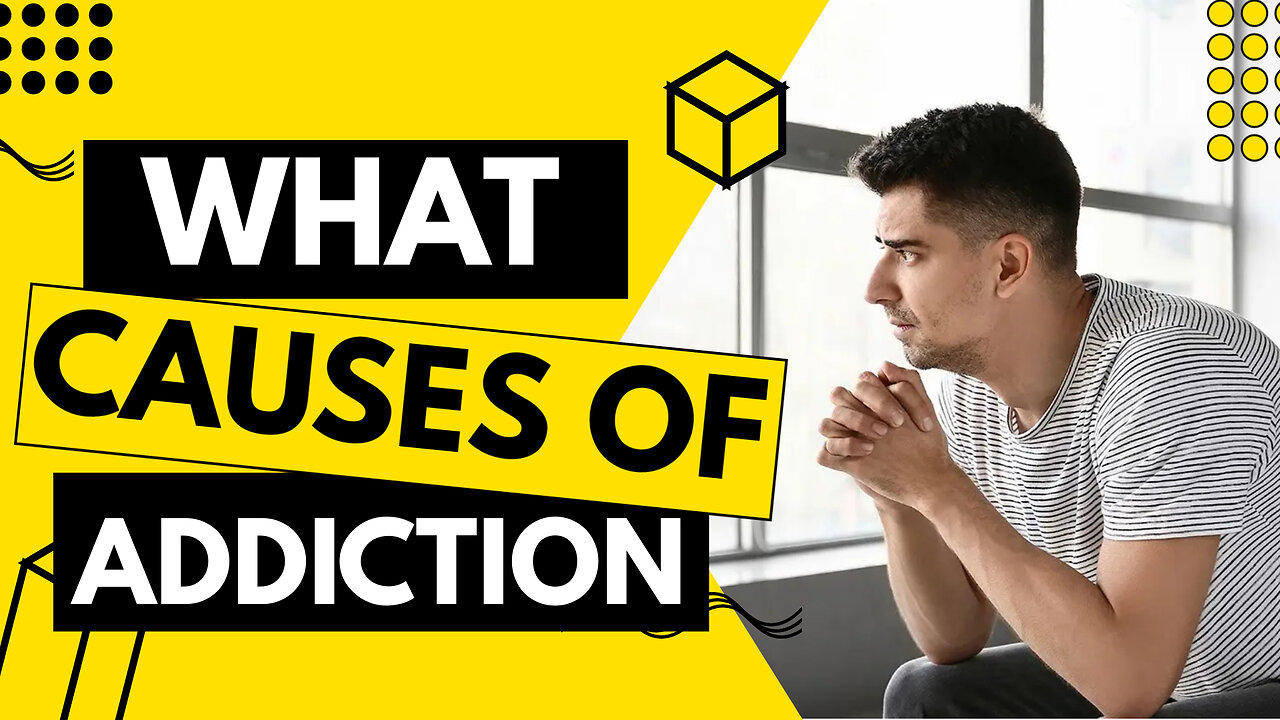Premium Only Content

What Causes Addiction - The Science of Addiction
In the realm of neuroscience, psychology, and public health, addiction remains a formidable challenge. From substance abuse to compulsive behaviors, addiction can exert a powerful grip on individuals, often leading to devastating consequences for both the affected individual and society at large. Understanding the intricate mechanisms that underpin addiction is crucial for developing effective prevention and treatment strategies. In this comprehensive exploration, we delve deep into the science of addiction, unraveling its causes, manifestations, and potential avenues for intervention.
Before delving into the science behind addiction, it’s essential to establish a clear definition of what addiction entails. Addiction is a complex condition characterized by compulsive engagement in rewarding stimuli despite adverse consequences. This definition encompasses a wide range of addictive behaviors, like play games, internet addiction, and compulsive eating.
At its core, addiction involves alterations in brain function and neurochemistry, fundamentally reshaping the way individuals process reward, motivation, and decision-making. Key neurotransmitter systems, including dopamine, glutamate, and serotonin, play pivotal roles in the development and maintenance of addictive behaviors. Dopamine, in particular, is implicated in the brain's reward circuitry, reinforcing pleasurable experiences and driving the cycle of addiction.
While environmental factors undoubtedly influence addiction, genetic predispositions also contribute significantly to an individual's susceptibility to addictive behaviors. Family and twin studies have provided compelling evidence of genetic heritability in addiction risk, with certain genetic variations increasing the likelihood of developing substance use disorders or other addictive behaviors.
Psychological processes, including stress, trauma, mental health disorders, and personality traits, also contribute to the development of addiction. Many individuals turn to addictive substances or behaviors as a means of coping with negative emotions or seeking temporary relief from psychological distress. Moreover, certain personality traits, such as impulsivity and sensation-seeking, are associated with an increased risk of addiction.
-
 LIVE
LIVE
Times Now World
14 hours agoPUTIN PRESSER LIVE | “We Won’t Be Intimidated” — Moscow Warns U.S. After Trump’s Oil Sanctions
88 watching -
 18:35
18:35
Odd Man Out
2 days agoFrance's shame of the century all for DEI pandering
5.46K84 -
 2:12:37
2:12:37
The Quartering
3 hours agoWe've Been Invaded By Low IQ Killing Machines
120K15 -
 LIVE
LIVE
Jeff Ahern
1 hour agoFriday Freak out with Jeff Ahern
135 watching -
 LIVE
LIVE
Side Scrollers Podcast
1 day ago🔴SIDE SCROLLERS SUB-A-THON🔴FINAL DAY!🔴Craig Makeover + US Dart Throw + More!
1,158 watching -
 9:26
9:26
Rethinking the Dollar
5 hours agoCar Gone. Job Gone. Hope Gone? The Silent Debt Crisis In America
2.04K7 -
 2:10:21
2:10:21
The Culture War with Tim Pool
4 hours agoLeftist TERROR Attack On Coast Guard, Liberals Claim Trump Is A TYRANT | The Culture War DEBATE
115K279 -
 23:38
23:38
Professor Nez
2 hours ago🚨NO WAY HE RECOVERS! Trump CONFRONTS Aussie Ambassador & Finishes Him Off
12.7K11 -
 4:07
4:07
Sean Unpaved
3 hours agoFBI Hoops Bust Day 2!, NFL/CFB Week 8-9, & World Series Opener Preview
12.9K -
 46:24
46:24
Lara Logan
15 hours agoPUTIN’S QUIET DIPLOMAT: Kirill Dmitriev on Peace & War in Ukraine | EP 41 | Going Rogue w Lara Logan
16.7K6